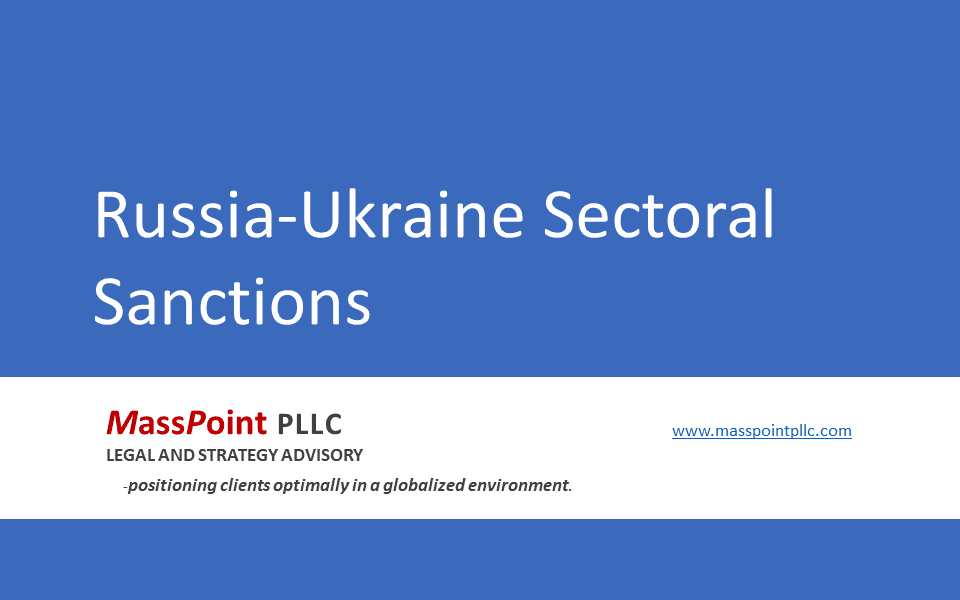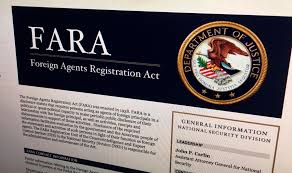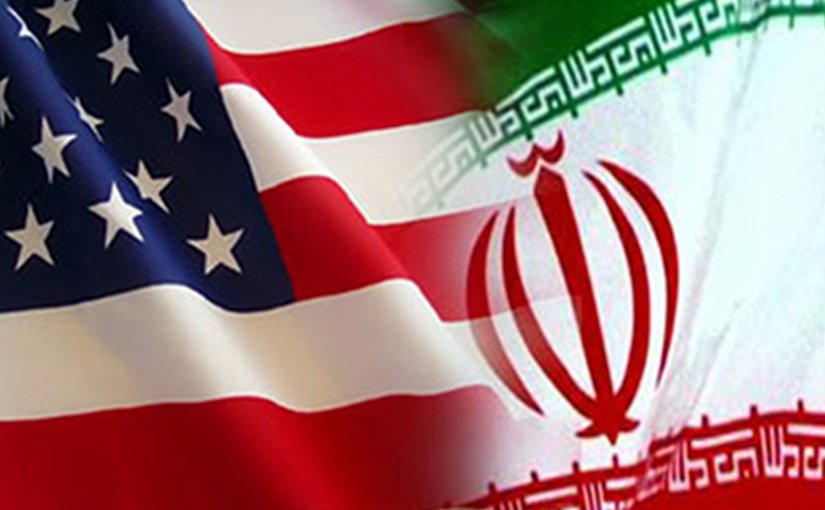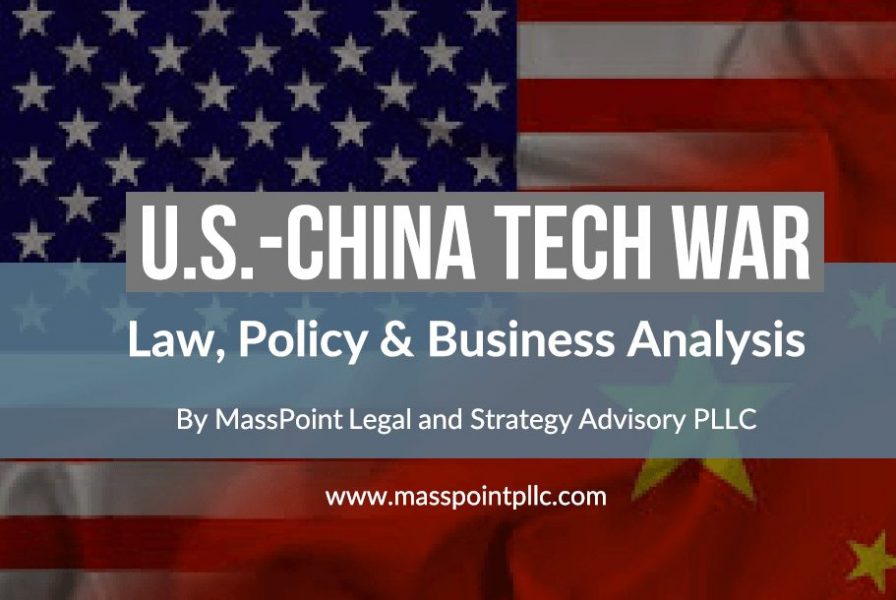
Hdeel Abdelhady is MassPoint PLLC’s founder and principal. She focuses on international trade, namely sanctions, emerging technologies export controls, foreign investment in the United States (CFIUS), anti-corruption, and anti-money laundering.
In the international trade area, Ms. Abdelhady focuses on established and evolving law, regulation, and policy pertaining to emerging technologies such as artificial intelligence, semiconductors, additive manufacturing, and battery technology.
Ms. Abdelhady created and a one-of-a-kind law school course on Regulation of Foreign Access to U.S. Technology, covering the continuum of key laws, regulations, and policies designed ultimately to maintain U.S. technological leadership in emerging technologies like artificial intelligence, advance semiconductors, and robotics, from foreign investment in the United States to export controls and sanctions.
The course also covers existing law and policy applicable to academic and other research environments, and the U.S.-China tech race. She currently teaches the course at The George Washington University Law School, were she has served part-time as a Professorial Lecturer in Law for 20 years.
Prior to founding MassPoint PLLC, Ms. Abdelhady practiced law with two major U.S.-based law firms, and has served as secondment counsel to two banks, both in Washington, D.C. and in Dubai.
Ms. Abdelhady publishes frequently in her areas of practice and academic instruction. Her writings have appeared in, among other publications, the World Bank Legal Review, Butterworths Journal of International Banking and Financial Law, the Sustainable Law and Development Journal, Law360, Reuters, and Ahram Online.
- Fellow of the American Bar Foundation
- Member, Board of Directors, Association of Certified Financial Crime Specialists, DC Chapter
- Member, ABA Task Force on Gatekeeper Regulation and the Profession
- MassPoint PLLC, Corporate Law Firm of the Year, USA, Finance Monthly Global Awards
- Corporate: M&A and Governance, Who’s Who Legal 2016
- Past Co-Chair, ABA Middle East Committee
JD, The George Washington University Law School
- Member, Moot Court Executive Board
- Chairwoman, Van Vleck Constitutional Law Moot Court Competition
- “Best Overall Competitor” and “Best Oralist” awards, Van Vleck Constitutional Law Moot Court competition
- Class of 2002 Clinics Volunteer Service Award
- President, Street Law Student Association
- Law Clerk, U.S. Department of Justice, Civil Rights Division
- Judicial Intern, Superior Court of the District of Columbia
BA; Political Science, History (Middle East and Africa), University of Pittsburgh
- District of Columbia
- Commonwealth of Virginia
- State of Maryland
- United States Court of Appeals for the Fourth Circuit
- Hdeel Abdelhady named a Fellow of the American Bar Foundation, July 2019.
- Hdeel Abdelhady was quoted in Reuters, CFTC’s Glencore investigation seen reflecting broader U.S. anti-corruption strategy, July 2019.
- Hdeel Abdelhady was quoted in PaymentsSource, BRICS v. SWIFT: Russia spearheads payments plan to guard against U.S. sanctions, July 2019.
- Hdeel Abdelhady appointed to the American Bar Association Task Force on Gatekeeper Regulation and the Profession, June 2019.
- Hdeel Abdelhady discussed the ratcheting up of U.S. sanctions on NPR’s Morning Edition, May 2019.
- Hdeel Abdelhady was quoted on the Supreme Court’s decision in Trump v. Hawaii (travel ban/Muslim ban case) in Law360, June 2018.
- Hdeel Abdelhady was quoted by the Association of Certified Financial Crime Specialists on the NYDFS’ enforcement action against Pakistan’s Habib Bank.
- Hdeel Abdelhady was appointed American Bar Association Section of International Law Liaison to the Dubai International Financial Centre Courts.
- Hdeel Abdelhady was quoted in Islamic Finance News (IFN) on the potential impact of the U.S. Election (2016) on Islamic finance and investment in the United States. IFN is the world’s leading provider of Islamic Finance news, November 2016.
- Who’s Who Legal recognized Hdeel Abdelhady for Corporate: M&A & Governance in 2016.
- Hdeel Abdelhady was re-appointed as the American Bar Association Section of International Law’s Liaison to UNCITRAL.
- Hdeel Abdelhady’s article in Ahram Online on changes to Egypt’s investment laws were mentioned in Weekend Reading: Investing in Egypt, Haunting 1967 Photos, and August in Turkey, Council on Foreign Relations, June 6, 2014.
- Hdeel Abdelhady was quoted on the Dubai Islamic Economy in Spark Your Legal Career With These In-Demand Law Jobs, U.S. News & World Report, March 12, 2014.
- Hdeel Abdelhady was quoted in Political divisions slow Islamic Finance in Egypt, Reuters, April 22, 2012.
- A program led by Hdeel Abdelhady was covered in Hawkamah, American Bar Association forum on Islamic finance, CPI Financial, May 4, 2010.
- Hdeel Abdelhady was mentioned in Arab International Women’s Forum to host first US conference, Business Intelligence Middle East, June 22, 2008.
- Speaker, National Security and the Economy in the 21st Century: Foreign Investment, Supply Chains, and Sanctions, Georgetown Law National Security Law Symposium, March 2023.
- Speaker, International Trade and Technology, American University Law Review Volume 71 Federal Circuit Symposium, November 5, 2021.
- Speaker, Firewall: Sanctions, Export Controls, and CFIUS Enforcement in Cyberspace, American Bar Association, June 30, 2021.
- Lawyers as Gatekeepers (of the Financial System), Federal Bar Assn Virtual Tax Law Conference, March 4, 2021.
- Moderator, Where National Security Meets the Private Sector: CFIUS & Trade, The George Washington University Law School National Security Law Student Assn, February 24, 2021.
- Discussant, Moriba’s Vox Populi, Religion, Ethics & Space, February 14, 2021.
- Accuity RegTech Podcast, Regulatory landscape for legal firms in the U.S., July 27 & 29, 2020 (2 parts).
- Accuity, Ask the Expert (Q&A with Hdeel Abdelhady), COVID, Sanctions & Trade, Part 1 and Part 2, July 2020.
- Sanctions Compliance in a State of Flux – Trends and Guidance Amid Global Upheaval, Accuity-ACFCS Webinar, April 2020.
- Understanding and Ensuring Compliance with the Foreign Agents Registration Act, ABA Business Law Section Meeting, Washington, D.C., 2019
- Critical Minerals, National Security & Supply Chains, American Bar Association webinar, January 2019.
- Rule of Law in the Exploration and Use of Outer Space, Galloway Symposium, Washington, D.C., December 2018.
- U.S.-China Trade and Technology Law and Policy, Briefing for Shanghai Pudong delegation, University of Maryland, November 2018.
- The Beat With Ari Melber, MSNBC (on reports of Michael Cohen banking transactions), May 2018.
- Islamic Finance, Principles and Strategies, Harvard Law School, Cambridge, Mass., March 2018.
- Know Your Business Partners: A Must to Managing Money Laundering, Trade Sanctions, and Corruption Risks, ABA Business Law Section Fall Meeting, Washington, D.C., November 2017.
- Planning for Market Uncertainty When Investing in or Managing Social Enterprises, Managing Local Issues in Emerging Markets, Grunin Center for Law and Social Entrepreneurship, NYU Law School, May 2017.
- Moderator and Program Chair, The Panama Papers, Lawyers’ Professional Ethics and Due Diligence Obligations, ABA International Section Spring Meeting, Washington, D.C., April 2017.
- Moderator and Program Chair, Iran After Partial Sanctions Relief and U.S. Elections: Legal, Risk, and Practical Issues for Business, MassPoint PLLC, ABA International Section and Bryan Cave LLP, Washington, D.C., November 2016.
- Speaker (invited), United Nations Commission on International Trade Law (UNCITRAL) Asia Pacific Incheon Spring Conferences, Incheon Korea, June 2015.
- Moderator and Program Chair, Managing Anti-Money Laundering Compliance Risk for Financial Institutions, Moderator and Program Chair, American Bar Assn and Arab Bankers Assn, New York City, May 2015.
- Speaker, The UN Convention on Contracts for the International Sale of Goods in Foreign Legal Systems, United Nations Commission on International Trade Law (UNCITRAL)-Georgetown Law School, Washington, D.C., January 2015.
- Speaker, Investor-State Dispute Prevention: Pathways for Egypt, Presentation for the Egyptian Ministry of Justice and General Authority for Investment, International Finance Corporation, Washington, D.C.
- Speaker, Effective Insolvency Regimes for Islamic Finance, World Bank, Washington, D.C., 2012./
- Strategic Competition Act Would Subject Foreign Funding of U.S. Universities to CFIUS Review, April 2021.
- A Strategic Approach to Artificial Intelligence Export Controls Could Target Semiconductor Hardware, MassPoint PLLC Jan. 2020, republished in Law360.
- Huawei: Post-G20 Rundown of Legal Issues in Context, MassPoint PLLC, July, 2019.
- Tech War: U.S. Whole-of-Government Approach to China is a Force Multiplier, MassPoint PLLC, May 2019.
- Huawei, Questions About Ownership, and the Foreign Agents Registration Act, MassPoint PLLC, April 2019.
- Infographic: U.S.-China Trade and Policy Issues, MassPoint PLLC, January 2019.
- U.S.-China Trade War on Three Fronts (Tariffs, Intellectual Property, Law), May 2018.
- U.S. Law as Trade War Weapon, Law360, May 21, 2018.
- House Bill “Blocks Bailout” of ZTE After Export Ban, May 19, 2019.
- Trade Wars: Restrictions on Foreign Access to U.S. Technology, Hdeel Abdelhady in Law360, October 19, 2018.
- OFAC Highlights the Importance of Integrating IP Address and KYC Data in Sanctions Compliance, MassPoint PLLC, June 2023.
- U.S. blocking and non-blocking sanctions on Russia to be felt widely, Reuters, March 2022 (link).
- United States Targets Chinese Belt & Road Project With Global Magnitsky Sanctions: Corruption, Human Rights, and Geostrategy, MassPoint PLLC (republished in International Enforcement Law Reporter), October 2020.
- Amid COVID-19, OFAC exempts medicines, PPE, other items from sanctions on Iranian manufacturing, Reuters, June 2020.
- OFAC Asserts Jurisdiction Over Foreign Transactions Involving U.S. Origin Software and Telecommunications Hardware, MassPoint PLLC; republished in Law360, March 3, 2020.
- OFAC’s Expanded Sanctions Reporting Rules: Analysis and Public Comment, Money Laundering News, July 2019.
- Tech War: U.S. Whole-of-Government Approach to China is a Force Multiplier, MassPoint PLLC, May 2019.
- Trade-Based Debt is Subject to Russia Sectoral Sanctions Prohibitions (Haverly Systems), MassPoint PLLC, May 2019.
- Huawei, Questions About Ownership, and the Foreign Agents Registration Act, MassPoint PLLC, April 2019.
- OFAC Expanded General License for U.S. Persons to Transact in Certain Inherited and Other Property in Iran, MassPoint PLLC, February 2019.
- Infographic: U.S.-China Trade and Policy Issues, MassPoint PLLC, January 2019.
- Reimposed U.S. Anti-Iran Sanctions Leverage American Economic Power, Reuters, November 7, 2018.
- U.S.-China Trade War on Three Fronts (Tariffs, Intellectual Property, Law), May 2018.
- U.S. Law as Trade War Weapon, Law360, May 21, 2018.
- House Bill “Blocks Bailout” of ZTE After Export Ban, May 19, 2019.
- OFAC Further Tightens Russia Debt Prohibitions Pursuant to the Countering Russian Influence in urope and Eurasia Act of 2017 (OFAC DIrective 1 As Amended September 29, 2017), October 2017.
- United States Adds Russian Direct Investment Fund, Other Russian Financial Services Actors to Sectoral Sanctions List, August 2015.
- A Great BRIC Wall? Emerging Trade and Finance Channels Led by Non-Western Nations Could Curtail the Global Reach of U.S. Law, June 2015.
- Global Magnitsky FAQs, October 20, 2018.
- Global Magnitsky: The Swiss Army Knife Of Sanctions, Law360, August 7, 2018 (view at Law360).
- Global Magnitsky Sanctions “a Central Tool of U.S. Foreign Policy,” May 28, 2018.
- Some U.S. Individuals and Entities Have Direct Sanctions Exposure Under Global Magnitsky Sanctions, MassPoint Magnitsky Series, No. 5, April 10, 2018.
- Departing from Prevailing Legal Standards, United States Directly Sanctions Foreign Government Officials for Corruption, MassPoint Magnitsky Series, MassPoint Magnitsky Series, No. 4, April 6, 2018.
- How the Trump Administration Supercharged Global Magnitsky Corruption and Human Rights Sanctions, MassPoint Magnitsky Series, No. 3, April 3, 2018.
- From Sergei Magnitsky to Global Magnitsky: United States Asserts Universal Jurisdiction Over Corruption and Human Rights Abuses, MassPoint Magnitsky Series, No. 2, March 27, 2018.
- New U.S. Sanctions Are a Powerful Weapon Against Corruption and Human Rights Abuse Worldwide, MassPoint Magnitsky Series, No. 1, March 5, 2018.
- China’s Expanded Export Controls Complicate TikTok Divestment, Potentially Trigger Unprecedented Legal Scenario, MassPoint PLLC August 2020.
- Foreign Investment, National Security, and Personal Data: Grindr’s Perfect Storm, MassPoint PLLC, May 2019.
- Trade Wars: Restrictions on Foreign Access to U.S. Technology, Hdeel Abdelhady in Law360, October 19, 2018.
- 5 Legal and Business Issues to Watch in 2017 (Post-Election), MassPoint PLLC, January 6, 2017.
- Proposals to Curb Foreign Investment in the United States Gaining Steam After the U.S. Election, MassPoint PLLC, November 18, 2016.
- 5 Legal and Business Issues to Watch in 2017 (Post-Election), MassPoint PLLC, January 6, 2017.
- Public Hearing: Chinese Investment in the United States: Impacts and Issues for Policymakers, Notice of Outside Event, January 19, 2017.
- U.S. Senators Raise National Security Concerns About Foreign Investment in U.S. Real Estate, MassPoint PLLC, May 19, 2017.
- Justice Against Sponsors of Terrorism Act (JASTA), MassPoint PLLC, October 4, 2016.
- Foreign Investment in U.S. Agriculture Raises National Security Concerns, MassPoint PLLC, April 18, 2016.
- Senate Bill Deprives State-Owned Enterprises of Sovereign Immunity as a Litigation Tactic in U.S. Courts, MassPoint PLLC, September 21, 2016.
- Critical Minerals: Where National Security, Trade and Environmental Laws Will Meet
- Glencore FCPA Investigation, a Canary in the Cobalt Mine, July 3, 2018.
- Foreign Investment in U.S. Agriculture Under Scrutiny: Raising National Security, Critical Infrastructure, and Key Resources Concerns, MassPoint Business Update, April 2016.
- FAO-OECD Guidance on Responsible Agricultural Supply Chains: Considerations for Investors, Food-Agri Companies, and Finance Providers, MassPoint Business Alert, February 2015.
- Global food security: A ticking timebomb for the Islamic World (quoted in), Islamic Finance News 2014.
- Agriculture Investment and Food Security Require Multidimensional Approaches, MassPoint Occasional Note 2014.
- Global Rush for Agricultural Land: Rewards and Legal Risks, Speaker and Program Chair, Washington, D.C. 2013.
- Nile Waters Dispute: Egypt-Ethiopia, African Diaspora Today (radio interview), WVON Radio Chicago 2013.
- Triumph and Tragedy of Rhetoric on the Nile, Ahram Weekly 2013.
- The Curious Case Of Trump Attorney’s Suspicious Activity Report, Law360, April 2017.
- From Anti-Money Laundering to Immigration Enforcement: Time to Reassess the Law Enforcement Role of Banks, Credit Unions and Other Financial Intermediaries, September 2017.
- Hdeel Abdelhady Discussed the NYDFS Habib Bank Enforcement Action, September 2017.
- FinCEN Expands Geographic Targeting Orders, August 2017.
- Congressional Hearing on Terrorism Finance Probes Bank Secrecy Act Data Processing Effectiveness, Lack of Beneficial Ownership Transparency, and Potential BSA and Patriot Act Amendments, April 2017.
- Senate Bill to Combat ISIS Targets “Jurisdictions of Terrorism Financing Concern,” March 2017.
- Trump’s Foreign Policy May Further Strain Foreign Correspondent Banking (Derisking), January 2017.
- Panama Papers Renew Relevance of Proposed U.S. Beneficial Ownership Rule.
- Proposed U.S. Rule Requires Banks to Collect Beneficial Ownership Information, November 2015.
- Cross-Compliance for Financial Institutions: the Anti-Corruption-AML Nexus, September 2014.
- Anti-Corruption Enforcement and State-Owned Enterprises: Understand Unique Risks and Incentivize Compliance
- Panama Papers Renew Relevance of Proposed U.S. Beneficial Ownership Rule
- FIFA, the U.S. Financial System, and U.S. Jurisdiction Over Foreign Parties and Events
- BNY Mellon to Pay $14.8 Million to Settle “Corrupt” Hiring Charges for Providing Internships to Sovereign Wealth Fund Officials’ Family Members
- Proposed U.S. Rule Requires Banks to Collect Beneficial Ownership Information, November 2015.
- Cross-Compliance for Financial Institutions: the Anti-Corruption-AML Nexus, September 2014.
- Globalized Anti-Corruption Enforcement: Direct and Collateral Consequences for Private and State-Owned Enterprises (financial institutions focus), MassPoint Occasional Note, November 2013.
- Dana Gas Sukuk: Legal Silos and Potential Lessons for Deal Teams (Islamic and Conventional), June 2017.
- Parsing Dana Gas’ Statement that Sukuk is “Unlawful”: Shari’ah, UAE Law, and Factual Questions, June 2017.
- Dana Gas Declares its Own Sukuk “Unlawful”: Revisiting The Investment Dar Case and “Shari’ah Risk,” June 2017.
- Deposit insurance frameworks for Islamic banks: design and policy considerations, Butterworths Journal of International Banking and Financial Law, 2015.
- Consumer-oriented insolvency risk allocation in Islamic retail profit sharing investment accounts, Butterworths Journal of International Banking and Financial Law, 2014.
- Specialized Insolvency Regimes for Islamic Banks: Regulatory Prerogative and Process Design, World Bank Legal Review, Volume 5. 2013.
- Islamic Finance as a Mechanism for Bolstering Food Security in the Middle East: Food Security Waqf¸ Sustainable Development Law and Policy Journal (American Univ. Washington College of Law), 2013.
- The Front Office Generates Revenue, the Back Office Creates Value: Operational Excellence is the Key to Unlocking Long-Term Value in Islamic Finance, ABA-Hawkamah Institute for Corporate Governance (DIFC) joint White Paper (reprinted in Opalesque Islamic Finance Intelligence), 2010.
- Islamic Law in Secular Courts (Again): Teachable Moments from the Journey, International Law News, Fall 2009 (reprinted in Opalesque Islamic Finance Intelligence and ABA GP Solo Magazine), 2009.
- Nonfinancial Risk For Banks: Incorporating Environmental, Social and Governance (ESG) to Identify and Manage Banks’ Legal, Commercial and Reputation Risk, April 2017.
- Information Has Democratized Business Regulation, Adjust Risk and Compliance Thinking Accordingly, May 2016.
- Money is Not Enough: Emerging Markets Enterprises Need Entrepreneurial Governance to Achieve Strategic Objectives in a Changing Environment, October, 2015.
- World Bank Group Can be Sued for “Commercial Activity” Says SCOTUS (Jam/IFC), MassPoint PLLC, March 2019.
- “ISIS’ Islamic Stagecraft,” Ahram Weekly, October 2017 (or read the reader-friendly PDF here).
- Editor, 2015 Middle East Legal Developments in Review (Advance Copy), American Bar Association Section of International Law Middle East Committee.
- Harmonization of Global Sales Law, UNCITRAL Asia Pacific Incheon Spring Conferences, Incheon, South Korea, June 2015.
- The CISG in Foreign Legal Systems (or not), Speaker, United Nations Commission on International Trade Law – Georgetown Law Global Sales Law Conference: The CISG at 35: Challenges Today, Washington, D.C., January 2o15.
- Egypt’s New Investment Law Misses the Mark, Ahram Online, June 4, 2014.
- The Selective Piety of Egypt’s Islamists, Ahram Online, June 23, 2013.
- The Real Revolution Underway in Egypt, Ahram Online, December 2012.
- Rule of Law in Egypt; Challenges for Democracy, Moderator, Aspen Institute, Washington, D.C. 2011, September 22, 2011.
- Pillars of a Modern and Democratic Egyptian Constitution, Egypt Revolution Conference, Washington, D.C., October 21, 2011.
- Egypt Needs a Mindset Revolution (to transition economically), Ahram Weekly, October 6, 2011.
- Egypt’s Prosecutor General Must Advance the Rule of Law, Ahram Online July 25, 2011.
- Partners for Change: Realizing the Potential of Arab Women in the Private and Public Sectors, Arab International Women’s Forum, World Bank, Washington, D.C., June 2008.
- The Impact of Islam in the Constitution of Iraq, Public International Law & Policy Group Roundtable Series on Next Steps for Implementing the Iraq Constitution, Washington, D.C., January 2006.
- The Impact of Islam in the Constitution of Iraq, Public International Law & Policy Group Roundtable Series on Next Steps for Implementing the Iraq Constitution, Washington, D.C., January 2006.
- Issues in Federalism: Negotiation Simulation on the Formation of Regions in Iraq, Public International Law & Policy Group Roundtable Series on Next Steps for Implementing the Iraq Constitution, Washington, D.C., January 2006.
- Investor-State Dispute Prevention: Egypt, Presentation for the International Finance Corporation, the Egyptian Ministry of Justice, and the Egyptian General Authority for Investment, Washington, D.C. 2013.
- Go Global, Grow Local: Positioning the DC Metro Area to Tap the Global Aspiration Economy, The 2030 Group Blog 2012.
- Montgomery County Today: Changing Community and Transformative Opportunity, Co-organizer and speaker (program on health sector growth) 2012.
- Islamic Finance as a Mechanism for Bolstering Food Security in the Middle East: Food Security Waqf, Eighth International Conference on Islamic Economics and Finance, Doha, Qatar 2011.
- Middle East Economic Outlook, Interview with Chief Economist of the DIFC, Interviewer, ABA Islamic Finance Committee Podcast, DIFC (Dubai), UAE 2010.
- China-Africa Trade and Investment: Is it a Two-Way Street?, Program Writer and Chair, Washington, D.C., 2007.
- Foreign Direct Investment and Investment Dispute Settlement, International Dispute Resolution for the Washington, D.C. Diplomatic Community, Washington, D.C., June 2006.
- Investment Risks in International Oil and Gas Contracts, Conference on Managing Risk in International Oil and Gas Contracts (under the auspices of the Egyptian Ministry of Petroleum), Cairo Regional Centre for International Commercial Arbitration, Cairo, Egypt, May 2006; Conference on Managing Risk in International Oil and Gas Contracts (under the auspices of the Libyan National Oil Company), Tripoli, Libya, May 2006.







